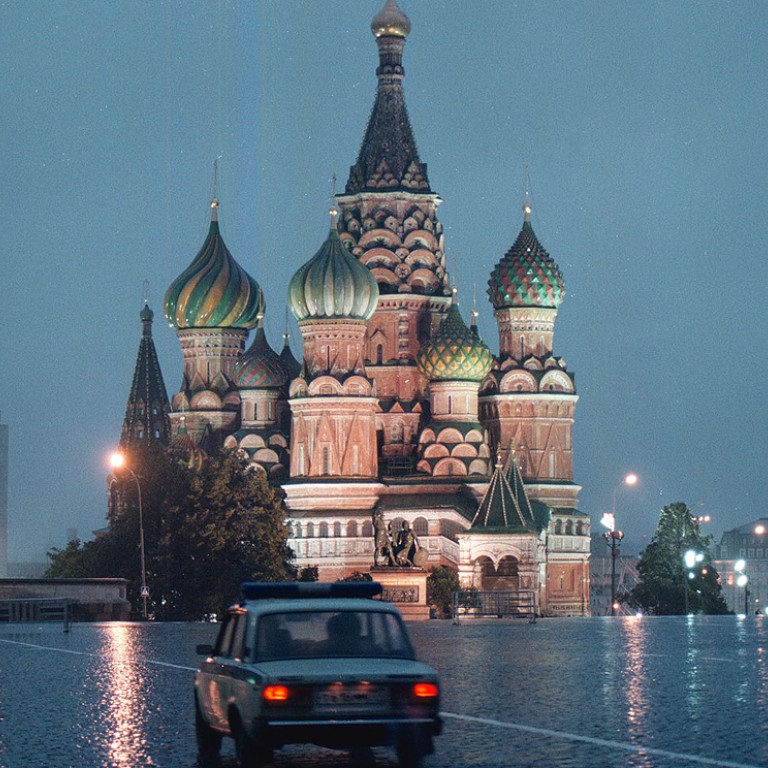
Russia bans transvestites, transsexuals, paedophiles and kleptomaniacs from driving
New law passed by a government decree signed by Prime Minister Dmitry Medvedev follows other legislation viewed as discriminating against people because of their sexual orientation
Russia has passed a controversial law banning transvestites, transsexuals and people with other “disorders” from driving, prompting sharp criticism from rights activists, including a prominent Kremlin adviser.
The purpose of the legislation, which took effect this week, is to lower the country’s high death rate from road accidents.
It prohibits people diagnosed with a range of medical, personality and gender identity disorders from taking the wheel.
Though these include blindness and epilepsy, it also lists transvestites and transsexuals as well as people with sexual fetishes, voyeurs, paedophiles, pathological gamblers and kleptomaniacs
“Those doctors and sex experts who oppose it are themselves basically perverts.”
Passed by a government decree signed by Prime Minister Dmitry Medvedev, the law follows other legislation viewed as discriminating against people because of their sexual orientation.
Since returning to the Kremlin for a third term in 2012, President Vladimir Putin has listed the “healthy family” and traditional values as priorities and pushed an increasingly conservative agenda.
This has included a law banning any so-called “propaganda” or display of homosexuality in front of minors, which was decried by rights activists, Western governments and stars including Madonna as a crackdown on gays and lesbians.
Russia has also banned adoptions by gay parents.
While Moscow formally decriminalised homosexuality in 1993, homophobia remains socially acceptable and few public figures have come out as gay. Human Rights Watch in December condemned Putin’s government for what it called “inaction” against rising homophobic attacks.
Those backing the new law include Vitaly Milonov, a regional lawmaker in St Petersburg and one of the strongest supporters of the law against gay “propaganda”. He praised it as an “absolutely correct and timely decision,” in comments to the daily.
“Those doctors and sex experts who oppose it are themselves basically perverts,” said Milonov, known for past homophobic outbursts.
A member of the rights council that advises the Kremlin, however, publicly challenged the new driving code as a potential breach of human rights.
Yelena Masyuk, a journalist, highlighted the “possible unfairness of removing the right to drive for those suffering from disorders of gender identity and sexual preference,” in a reaction on Thursday on the council’s website.
“I don’t understand why, for example, people with fetishes, kleptomaniacs and transsexuals can’t drive a car,” she wrote. “It seems to me that this is a breach of the rights of Russian citizens.”
Russia needs to “study global practice” and “judge whether a ban on people with fetishes, exhibitionists, voyeurs, kleptomaniacs and others from taking the wheel is well-grounded,” she wrote.
It was not immediately clear how the law would be enforced, but Russians must undergo a medical exam to obtain a licence so anyone “diagnosed” by a doctor with any of the listed conditions could presumably be refused.

The Association of Advocates of Russia for Rights joined the critics with a statement saying the driving code “obviously contradicts international norms and standards.”
By banning driving for “all transgender, bi-gender and asexual people, transvestites, cross-dressers and people who need gender correction [surgery]”, it could apply to many high-profile actors and pop stars popular in Russia, the legal advocacy group said.
This could include popular drag performer Verka Serdyuchka who performed at the Eurovision Song Contest for Ukraine, it noted.
Others reacted with similar irony. “More and more restrictions, hello North Korea!” wrote commentator, Kolya Bakhtinov, on Gay.ru news website. “If a [male] driver is dressed as a woman and he gets recorded on a police camera, he’ll lose his licence.”
In November, a dashboard-camera video of a Russian traffic policeman pulling over a driver who turned out to be a transvestite became a huge internet hit. Looking baffled as he checked the driver’s documents, the police officer roared with laughter upon realising that she was a he.
